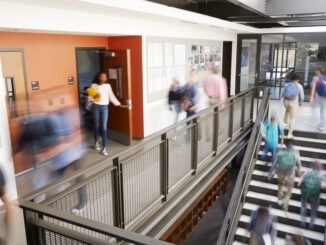As reported by The Independent, poorer students face hurdles as research by the Sutton Trust shows over 150 top comprehensive schools in England are more “socially selective” than grammar schools
The charity is calling on the Government to review admissions code policies to ensure children eligible for the pupil premium – which is funding for state schools to improve educational outcomes for disadvantaged pupils – are included in a school’s oversubscription priority criteria.
The Sutton Trust study looked at the top 500 secondary schools in England by the Attainment 8 measure – which assesses the achievement of a pupil across eight subjects at GCSE.
It found, on average, these top comprehensive schools took 40% fewer pupils eligible for free school meals (FSM) – a key measure of poverty – than the average comprehensive school.
The research suggested that around a third of this gap is down to the schools being located in more affluent areas, but two-thirds represent “some form of social selection within that area”.
These top comprehensive schools have 30% fewer pupils eligible for FSM than live in their catchment areas, according to the Sutton Trust.
This could be down to a “complex mixture of factors” – including schools’ complicated admissions policies, parental decision-making and degrees of parental agency, it added.
The research found that levels of social selection differed across England, with the lowest number of top schools concentrated in some parts of the country with the highest FSM rates.
In the North East, there has been increasing levels of FSM eligibility, fewer top comprehensive schools and “increasing levels of social selectivity” in the top schools that they do have, it found.
Faith schools are also more likely to be “socially selective” than the non-religious top comprehensive schools, according to the report.
The research concluded: “This report finds little evidence to suggest that comprehensive schools are becoming less socially selective, strong evidence that things have not improved since 2017 and some clear evidence pointing to increasing levels of social selection in comprehensive admissions in some parts of the system.”
Sir Peter Lampl, founder of the Sutton Trust, said: “The levels of social segregation across the school system are unacceptable.
“The poorest parts of the country are hit by a double whammy of having the fewest top comprehensive schools, which are also the most socially selective. This is deeply concerning.”
He added: “We need to urgently address this problem to create a more balanced system and raise the quality of all schools.
“The Government should review the school admissions code to ensure all state schools take a mix of pupils which reflects their local community and provide disadvantaged pupils with a fair chance to access top-performing schools.”
The Sutton Trust has also called on the Government to include an assessment of fair access in Ofsted inspections and to address financial barriers such as transport and uniform costs.




Be the first to comment